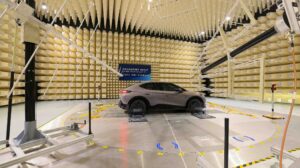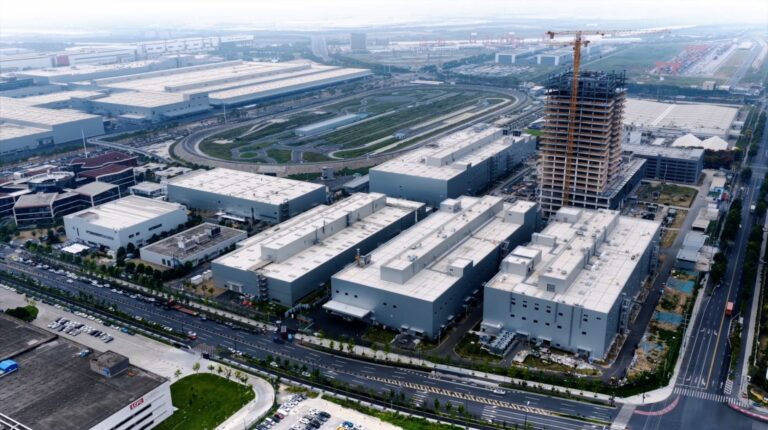Volkswagen Group China Technology Company (VCTC) has finished the final expansion stage of its Test Workshops in Hefei, bringing end-to-end development capabilities directly to the Chinese market. The facilities significantly expand the group’s local R&D strength and integrate software, hardware and whole-vehicle validation under one roof, enabling faster decision-making, closer customer alignment and accelerated rollout of next-generation technologies.
With the completion of the Test Workshops, Volkswagen can support the development and validation of new vehicle platforms from very early phases for the first time outside Germany. The Test Workshops feature over 100 state-of-the-art laboratories across around 100,000m2, delivering powerful testing capabilities. These include software-hardware integration, battery and powertrain testing and full vehicle-level validation.
Oliver Blume, the CEO of Volkswagen Group, said, “Our ‘In China for China’ strategy continues to gain momentum. At our development center in Hefei, China, we have now created all the conditions necessary to develop, test and locally manufacture the next generation of intelligent connected vehicles. This milestone makes us even faster and more efficient – and brings us even closer to our customers. This will enable us, as the Volkswagen Group, to consolidate our position in the world’s largest automotive market with the clear goal of becoming the global technology driver of the automotive industry.”
Ralf Brandstätter, the member of the board of management of Volkswagen AG responsible for China, and chairman and CEO of Volkswagen Group China, added, “China is the world’s most competitive automotive market, and our customers here expect rapid innovation and flawless quality. This is why we are taking our development capabilities in China for China to the next level. By expanding our footprint in Hefei, we are strengthening our ability to respond quickly to local needs and shape technologies directly where they will be used. This step deepens our commitment to China and ensures that our future products reflect the preferences and expectations of Chinese customers from the very beginning.”
As the group’s most comprehensive R&D hub outside Germany, Hefei is the only center dedicated solely to electric, intelligent and connected vehicles. VCTC integrates core development units and decision-making for local vehicle and technology projects while coordinating with the R&D units of joint ventures. By embedding itself within China’s technology ecosystem, the center aims to address market trends such as digitalization and autonomous driving early, positioning Volkswagen to leverage growth opportunities and innovation in the Chinese market.

China Electronic Architecture
In the Hefei software-hardware test workshop, VCTC and Cariad China are working toward the first delivery of the China Electronic Architecture (CEA) – the group’s first zonal E/E architecture specifically tailored to the needs of Chinese customers – within 18 months.
Enabled by the latest software-defined vehicle development process, the overall vehicle development cycle has been shortened by 30%. Leveraging local development and early supplier integration during the concept phase of new cars and technologies, the cost of a new model can be reduced by up to 50% in specific key projects. CEA also enables seamless integration of digital cockpit functions, advanced driving assistance system (ADAS) functions and whole-vehicle-level over-the-air upgrades.
Thomas Ulbrich, CTO of Volkswagen Group China and CEO of VCTC, noted, “The new workshops give our engineering teams an entirely new level of integration. We can now run software, hardware and full-vehicle validation processes in parallel, shorten decision loops and bring innovations to maturity much faster. This environment enables us to push forward next-generation intelligent-vehicle technologies with high precision and efficiency.”
At the Battery & Powertrain Integration Testing Center in Hefei, engineers can test up to 500 battery systems per year. Tests cover performance, lifetime, safety and environmental robustness, as well as e-drive, thermal management, electronics and battery cell components.
The Platform & Module Testing Center follows the same philosophy. Its advanced electromagnetic compatibility (EMC) laboratory safeguards the reliability of vehicle electronics, and a full-vehicle durability test bench can simulate all global driving road conditions within the workshops.
Together with the City Test Track, Volkswagen Group has established a full design-build-test-validate cycle in Hefei, in close collaboration with its global R&D network.
More capabilities to come
Volkswagen Group plans to expand its Hefei site, with a new Functions Integration Test (FIT) Laboratory scheduled to open mid-2026. One of only two in the group, the facility will simulate extreme environmental conditions, supporting Volkswagen’s next phase of intelligent and connected mobility.
In related news, Metrosert opens €900k mobile test facility for self-driving vehicles


